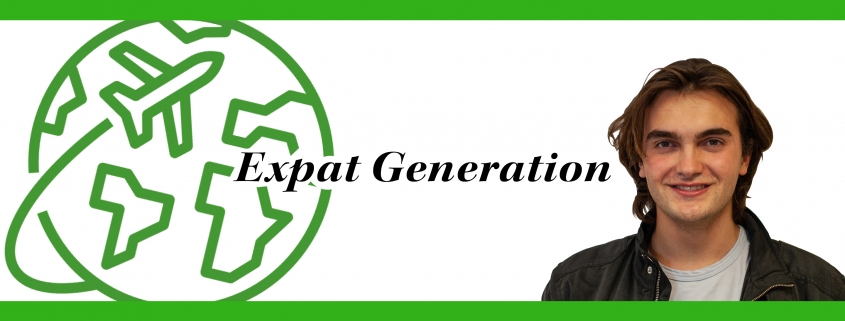Expat Generation: Challenging privilege requires gratitude and teamwork

I remember the flight attendant approaching me with a tray of steaming beverages immediately after crossing into American territory. “How would you like your privilege served today?”
The only thing that America is perhaps better at than discussing privilege is parading its own. Without letting this hypocrisy escape us, discussing one’s privilege is a good thing. The in-your-face approach to doing so is highly commendable and leads to much needed introspection.
Every country and person in the world should have the education and understanding of privilege, as well as the ability to question and discuss it as thoroughly as some Americans do. It is a lens that has successfully pushed forward social change, fueling some of the most impressive movements for social justice the world has seen, from women’s liberation to civil rights to LGBTQ+ pride. Everyone should be well-versed on the ins and outs of deconstructing privilege.
However, America is not perfect in its deconstruction — at least not anymore. There is something markedly vicious about the hostility with which privilege is currently often discussed in the United States. An accusatory tone stews division between people where consensus might have otherwise been attained.
To this day I am unsure at what point a society that champions individuality turned into one that picks apart every way people might be different from each other and then pits them one against the other. But labeling people and dividing them into groups seem to be deeply ingrained parts of America’s “I” culture. Within such a culture, it seems the ability for people to work together is often lost through unnecessary aggression and accusatory rhetoric. People become so caught up with obsessing over the trespasses of others that they forget to keep their own in check.
This, of course, goes way beyond talking about privilege. But it nonetheless has left its imprint in privilege talk as well.
In my experience living in the United States, I have found a recurring myth that privilege is zero sum; and a tendency to forget that privilege is always relative. I believe both of these inform themselves of notions of individuality. Taking a more holistic approach to understanding society as a whole helps deconstruct it.
Privilege is not a zero-sum game. Nobody owns all the privilege in the world, although some people without a doubt feel entitled to a much larger portion than is fair. That being said, it is important to understand we all hold privileged and unprivileged positions in different aspects of our own life. And the wonderful thing is realizing this not only helps us relate to each other’s vulnerabilities but also allows us to understand that bringing together our differences can make us all stronger. We might be surprised to find a broad range of unlikely allies who can share in the superordinate goal of improving everyone’s life.
If we reflect on the positions of advantage we do hold, it is easy to realize we can be immensely ignorant about the struggles others might face. On both sides of the coin, on which we will all inevitably be in different situations and interactions, it is important to remain empathetic and willing to help.
Privilege is also relative. For example, the most underprivileged citizen living freely in a first-world society is much more privileged than their counterparts in autocratic nations, developing nations or warring nations across the world. Poverty can mean job insecurity in one nation and food insecurity in another.
No matter how privileged or underprivileged one might be, there is always so much one has to be thankful for. Life is a gift that should never be taken for granted; neither should be the arbitrary luck one might have had at birth. Even if it might seem worse than that of others, countless more would give anything to have it.
With privilege should come accountability, and we should all spend at least three times as much time looking down toward helping those below us as we do looking up with spite. There will always be someone above and someone below, and in some bizarre way, it is all interconnected. Challenging the status quo and changing privilege should never be a solitary endeavor. It shouldn’t be about moving one’s individual link forward but about moving all to a better place.
It is important for everyone to be aware of the privileged positions we have been given, to be thankful for them and never take them for granted; understanding others, through no fault of their own, might not have had the same luck. Change should be a holistic and humble process, based on gratefulness for what we do have and an understanding that we must work together to get that which we do not. While one voice might be strong, it is nothing without the chorus of voices willing to back it up. While individualism is great for pointing out the work that needs to be done, it is only by coming together that it can be accomplished.
Javier Calleja Erdmann is a sophomore writing about the international student experience. His column, “Expat Generation,” ran every other Friday.

